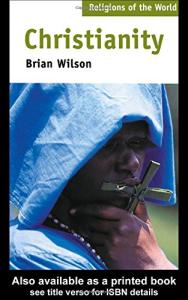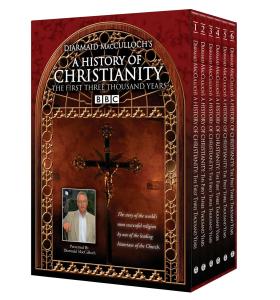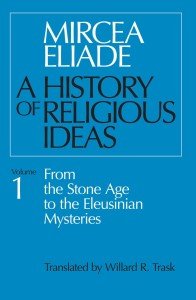Review
This review aims to provide an analysis of the book Christianity: The First Three Thousand Years by Diarmaid MacCulloch. This comprehensive work delves into the history of Christianity, tracing its roots from its humble beginnings in the ancient world to its current state as one of the world's major religions. MacCulloch offers a nuanced understanding of Christianity's evolution throughout three millennia through a thorough and unbiased exploration of key events, figures, and doctrines.
Diarmaid MacCulloch's book, Christianity: The First Three Thousand Years, is a monumental work that offers a comprehensive and unbiased exploration of the history of Christianity. This review aims to critically analyze the book's content, structure, and arguments while highlighting its strengths and weaknesses. The goal is to offer readers a deeper understanding of the complex and multifaceted nature of Christianity and its impact on both the past and present.
One of the main strengths of this book is its thorough and detailed examination of key events, figures, and doctrines that have shaped Christianity for three millennia. MacCulloch's writing is clear and understandable, making it accessible to scholars and lay readers. He presents a nuanced understanding of the religion, acknowledging its diversity and complexities and highlighting its unifying principles.
Moreover, the author's approach and methodology in presenting historical information are noteworthy. He avoids a biased or one-sided perspective, providing a balanced and objective account of Christianity's evolution. This allows readers to form interpretations and draw conclusions from the evidence presented.
Another significant aspect of this book is its contribution to the field of religious studies. By tracing the origins and development of Christianity, MacCulloch sheds light on its influence on Western civilization and its role in shaping the modern world. He also explores the religion's impact on other cultures and societies, making this book a valuable resource for understanding the global significance of Christianity.
However, one of the limitations of this book is its length and depth. At over 1000 pages, it may be overwhelming for some readers and require a significant time commitment to fully digest its contents. Additionally, some readers may find the detailed historical accounts and discussions of doctrinal debates to be dense and challenging to follow.
Despite these limitations, Christianity: The First Three Thousand Years remains a significant and informative work. MacCulloch's extensive research and comprehensive approach make it a valuable resource for scholars and anyone interested in understanding the history of Christianity. His analysis of key events and figures and his exploration of the religion's evolution provide a deeper understanding of its complexities and enduring impact on the world.
In conclusion, this review has provided an in-depth analysis of Christianity: The First Three Thousand Years by Diarmaid MacCulloch. The book offers a comprehensive and unbiased exploration of the history of Christianity, tracing its roots from its humble beginnings in the ancient world to its current state as one of the world's major religions. Through a critical examination of the book's content, structure, and arguments, readers can gain a deeper understanding of the complex and multifaceted nature of Christianity and its impact on both the past and present. Overall, this book is a significant contribution to the field of religious studies and offers valuable insights into the rich and complex history of this influential religion.






